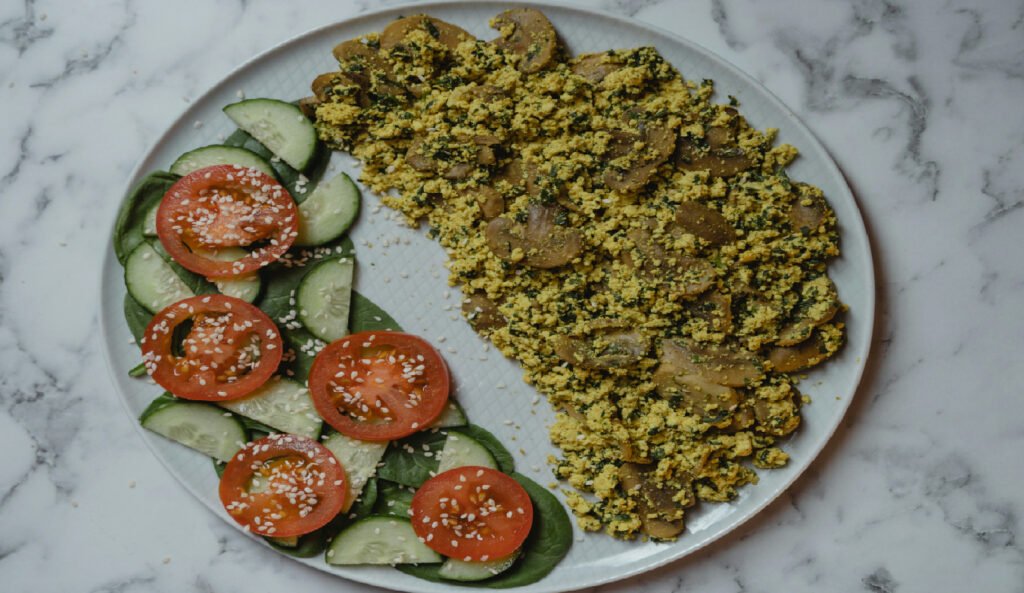Eating a vegetarian diet doesn’t necessitate a gourmet budget. Crafting low-budget vegetarian recipes is achievable with a little planning and resourcefulness. This article equips you with strategies to create flavorful and nutritious vegetarian dishes that won’t drain your wallet.

Embrace Budget-Friendly Staples: The Foundation of Your Vegetarian Diet
Building a low-budget vegetarian meal plan starts with selecting nutritious staples that are versatile and affordable. Here are some staples to stock your pantry with:
- Grains: Brown rice, quinoa, whole-wheat pasta, and oats provide essential carbohydrates, fiber, and vitamins. These staples can be used in a variety of dishes, from breakfast porridge to hearty pasta salads.
- Beans and Lentils: These protein powerhouses are exceptionally affordable and packed with nutrients. They can be used in soups, stews, salads, and even burgers to create satisfying and budget-friendly vegetarian meals.
- Eggs: A complete protein source at an affordable price, eggs are perfect for breakfast, lunch, or dinner. They can also be used in baked goods and savory dishes for added protein and versatility.
- Vegetables: Frozen vegetables are often more affordable than fresh produce and retain most of their nutrients. Stock up on frozen broccoli, mixed greens, corn, and bell peppers for quick and easy meal additions.
- Fruits: While fresh fruit is ideal, frozen or canned fruits in water or light juice can be a more budget-friendly option. Use them in smoothies, baked goods, or enjoy them as a healthy snack.
Planning Your Meals and Minimizing Waste: Save Money and Reduce Food Spoilage
Planning your meals is crucial for creating low-budget vegetarian recipes. By taking stock of your pantry and fridge staples, you can plan recipes that minimize waste and maximize the use of ingredients. Here are some tips:
- Create a Weekly Meal Plan: Dedicate some time each week to plan your meals. Consider including leftover dinners for lunches to avoid waste and save time during the week.
- Utilize Leftovers Creatively: Leftovers can be transformed into entirely new dishes. Use leftover roasted vegetables in frittatas, pasta salads, or stir-fries. Leftover bean soup can be pureed and transformed into a hearty vegetarian chili.
- Shop with a List: Stick to your grocery list to avoid impulse purchases that can derail your budget. Focus on buying in bulk for staples that you use frequently, but be mindful of expiration dates.
Stretch Your Budget with Affordable Protein Sources: Fuel Your Body Without Breaking the Bank
Protein is an essential nutrient for muscle repair, growth, and satiety. However, certain protein sources can be expensive. Here are some affordable protein options for your low-budget vegetarian recipes:
- Beans and Lentils (mentioned previously): These versatile protein powerhouses are a staple in many vegetarian cuisines and can be used in a variety of dishes.
- Eggs (mentioned previously): A complete protein source at an affordable price, eggs are perfect for breakfast, lunch, or dinner. They can also be used in baked goods and savory dishes for added protein and versatility.
- Tofu and Tempeh: These soy-based protein options are a great alternative for vegetarians. They can be marinated and grilled, stir-fried, or crumbled and used in sauces or vegetarian “meatloaf.”
- Nuts and Seeds: While higher in calories, nuts and seeds are a good source of protein, healthy fats, and fiber. Incorporate them into salads, smoothies, or enjoy them as a snack. However, be mindful of portion sizes due to their higher calorie content.
Embrace Budget-Friendly Cooking Techniques: Maximize Flavor and Stretch Your Ingredients
There are many cooking techniques that can help you stretch your ingredients further and create delicious low-budget vegetarian recipes. Here are a few ideas:
- Batch Cooking: Cook large batches of grains, soups, or stews on the weekend and portion them out for lunches or dinners throughout the week.
- Meal Prepping: Dedicate some time each week to prep ingredients for your meals. This can include chopping vegetables, cooking grains, and marinating tofu. Meal prepping saves time during busy weekdays and helps you stay on track with your vegetarian diet.
- Utilize Leftovers Creatively (mentioned previously): Don’t throw away leftovers! They can be transformed into entirely new dishes. Get creative and use leftovers in soups, salads, sandwiches, or frittatas.
- Embrace Flavorful Spices and Herbs: Store-bought sauces and dressings can be expensive and often contain hidden sugars and sodium. However, you can easily add flavor to your meals with a well-stocked spice cabinet. Some essential spices for vegetarian cooking include cumin, chili powder, garlic powder, onion powder, smoked paprika, and Italian seasoning.
Shop Seasonally and Visit Local Farmers Markets: Access Fresh Produce at Affordable Prices
While fresh produce can be more expensive out of season, shopping seasonally can help you score great deals on fruits and vegetables. Additionally, visiting local farmers markets can be a great way to find fresh, locally grown produce at affordable prices. These markets often offer deals on bulk purchases and imperfect produce that is still perfectly usable for cooking.
Embrace the Delicious World of Affordable Vegetarian Eating
Crafting nutritious and flavorful low-budget vegetarian recipes is definitely achievable. By embracing protein-rich staples, planning your meals, and utilizing budget-friendly cooking techniques, you can thrive on a vegetarian diet without breaking the bank. Remember, a vegetarian lifestyle doesn’t have to be expensive. With a little creativity and resourcefulness, you can enjoy a variety of delicious vegetarian meals that fuel your body and nournourish your soul. So, get exploring the world of vegetarian cooking and discover the abundance of affordable and flavorful options available to you!
Sample Low-Budget Vegetarian Meal Plan:
Here’s a sample low-budget vegetarian meal plan for one week to spark your creativity:
Monday:
- Breakfast: Scrambled eggs with whole-wheat toast and avocado
- Lunch: Leftover lentil soup with a side salad
- Dinner: Vegetarian chili with brown rice
Tuesday:
- Breakfast: Greek yogurt with berries and granola
- Lunch: Black bean and corn salad with a whole-wheat wrap
- Dinner: Veggie stir-fry with tofu and brown rice
Wednesday:
- Breakfast: Oatmeal with nuts and seeds
- Lunch: Chickpea salad sandwich on whole-wheat bread
- Dinner: Vegetarian pasta bake with roasted vegetables
Thursday:
- Breakfast: Whole-wheat pancakes with fruit topping
- Lunch: Leftover veggie stir-fry
- Dinner: Vegetarian pizza with whole-wheat crust
Friday:
- Breakfast: Smoothie made with yogurt, fruit, and spinach
- Lunch: Veggie burger on a whole-wheat bun with a side salad
- Dinner: Lentil stew with whole-grain bread
Weekend:
Plan to cook a larger vegetarian meal on the weekend that can be used for leftovers throughout the following week. This can help save time and money during the busy workweek.
Conclusion:
Eating vegetarian doesn’t have to be expensive. By embracing the tips in this article, you can create delicious and affordable low-budget vegetarian recipes that nourish your body and your wallet. So, get creative in the kitchen, explore budget-friendly ingredients, and embark on a journey of flavorful vegetarian eating!


